I have always felt that dressing well is about knowledge, not money. Tristan claims this suit costs $20k. That seems high to me, as a Savile Row suit typically costs ~$5k. But perhaps he went to the most expensive tailoring firm and choose the most expensive fabric. 🧵
https://twitter.com/TateTheTalisman/status/1688665184783437824
My following comments are not a slight on his tailors, as they may be very skilled. But just a comment on the suit, which is a collaboration between the tailor and the client. Despite costing $20k, it doesn't fit very well.
First thing is the divot in the sleevehead. When guys see this, they often think it's because their shoulders are too big, so they size down. In fact, the case is often the opposite.
Here we see Gary Cooper wearing very exended shoulders. Yet, no divot!


Here we see Gary Cooper wearing very exended shoulders. Yet, no divot!

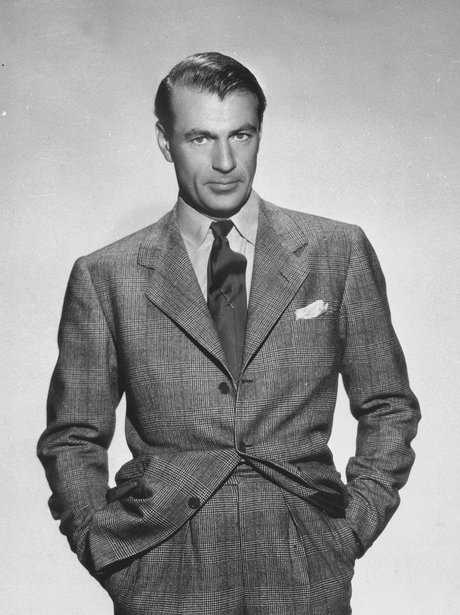
A divot in the sleevehead is often a sign the coat is too narrow through the shoulders and upper back. So you want to size up. If you already own the garment, you may be able to fix this by letting out the center back seam.
Before & after shots from the blog Tutto Fatto a Mano:


Before & after shots from the blog Tutto Fatto a Mano:
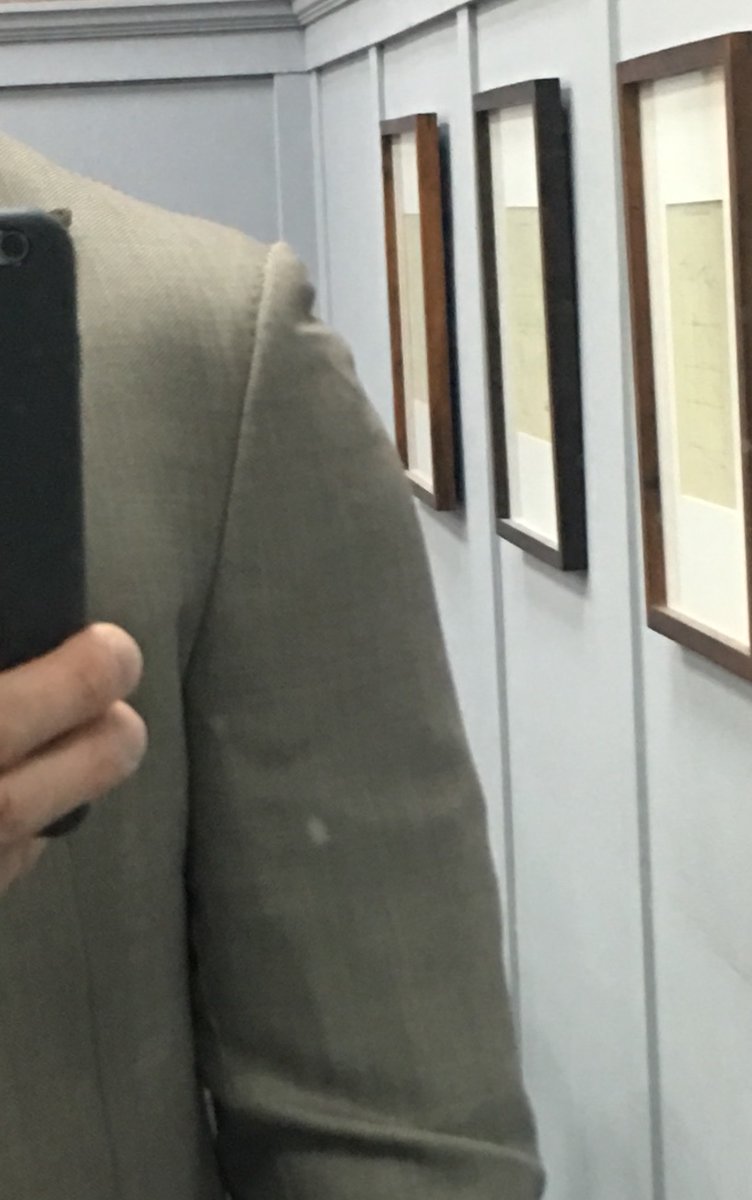
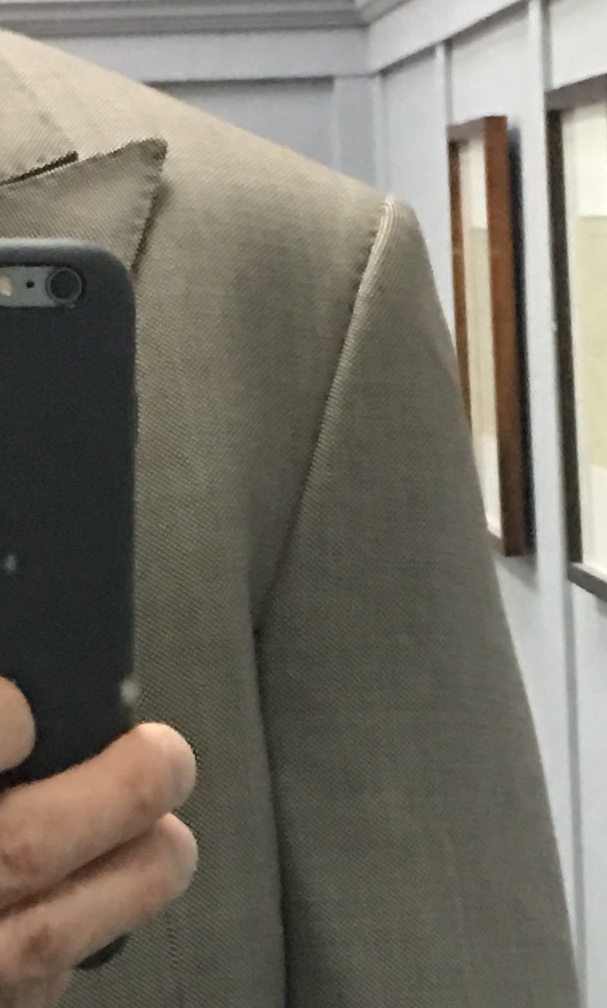
The other problem is that the lapels buckle away from the chest and the buttoning point is already straining, creating drag lines around the waist. This again suggests the chest and waist are too small for the wearer. 
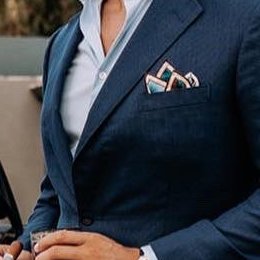
The trousers are also very narrow. You can see how the side seam is already straining, as the front panel doesn't have enough room for the leg. The narrowness is causing the trouser leg to catch on the wearer's calves, causing ripples below the knee. 
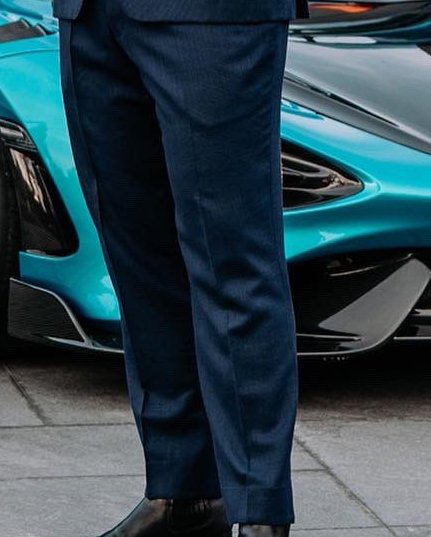
Compare this with King Felipe VI of Spain. His trousers always hang very cleanly. Both men are wearing trousers with a center crease, but only Felipe's trousers actually create that sharp uninterrupted line the crease is supposed to create.



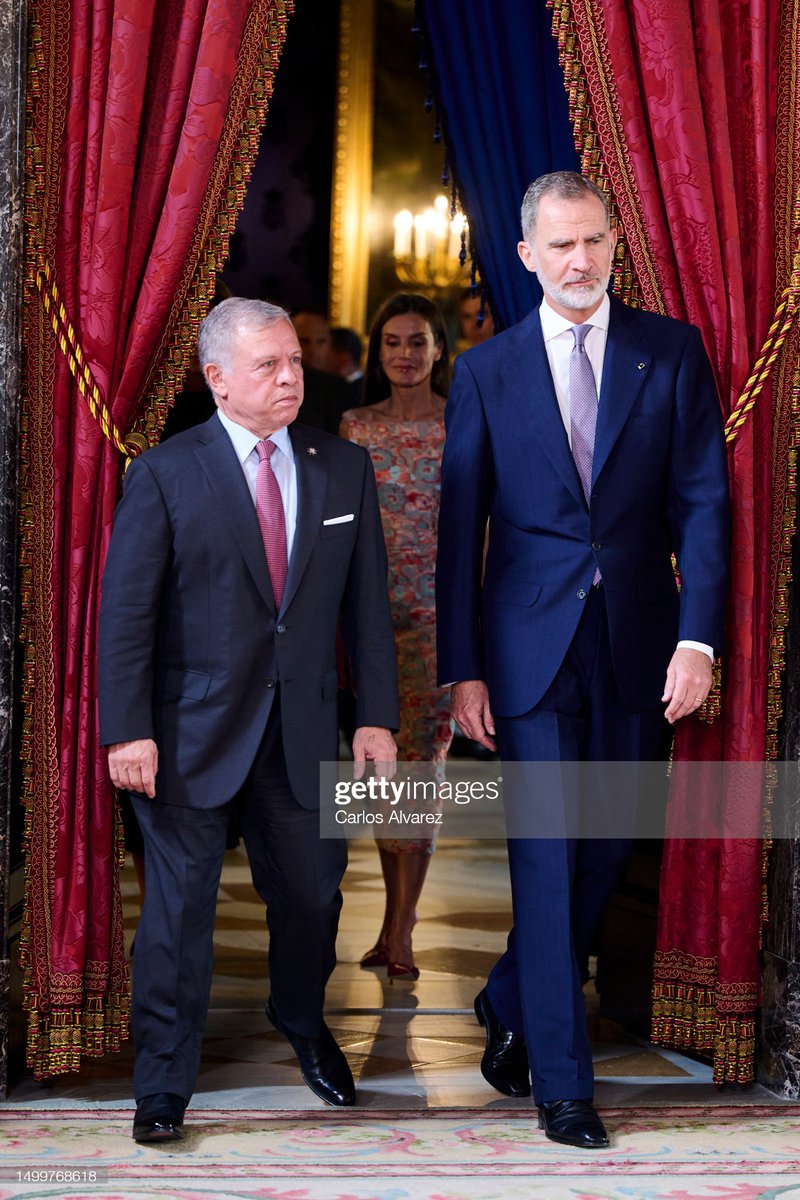
The other thing that sticks out to me is the balance, which is a tailoring term for how the coat hangs from the shoulders. It looks like Tristan's coat has a short front balance, which means the front is shorter than the back. This makes the coat looks like it's riding up on him


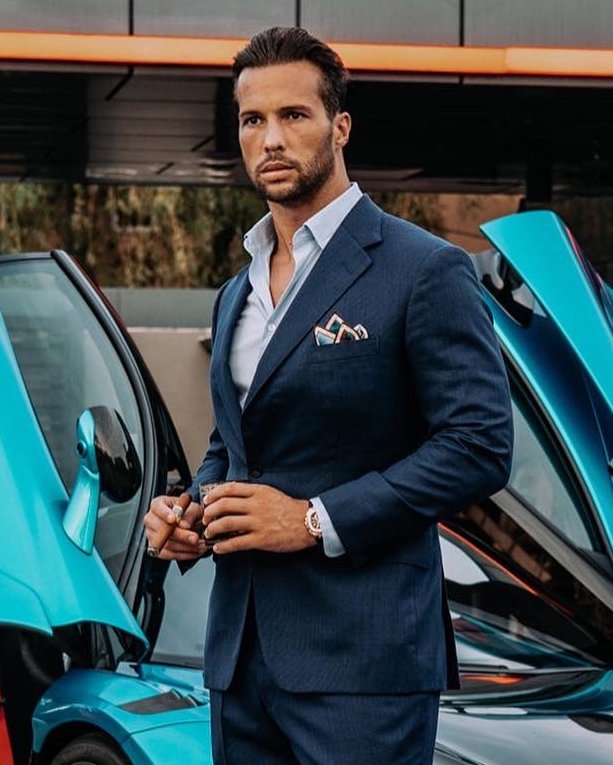
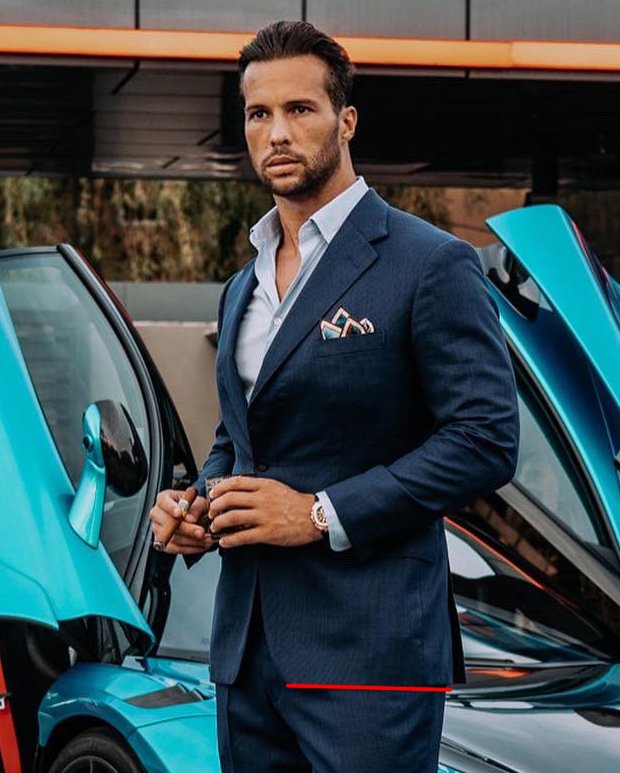
Again, on King Felipe, we see how a coat should hang: front can be even with the back, or it can be slightly lower. But the front should never be shorter than the back.
Tristan likely has a short front balance bc he is barrel chested. Not enough cloth to cover the chest.


Tristan likely has a short front balance bc he is barrel chested. Not enough cloth to cover the chest.
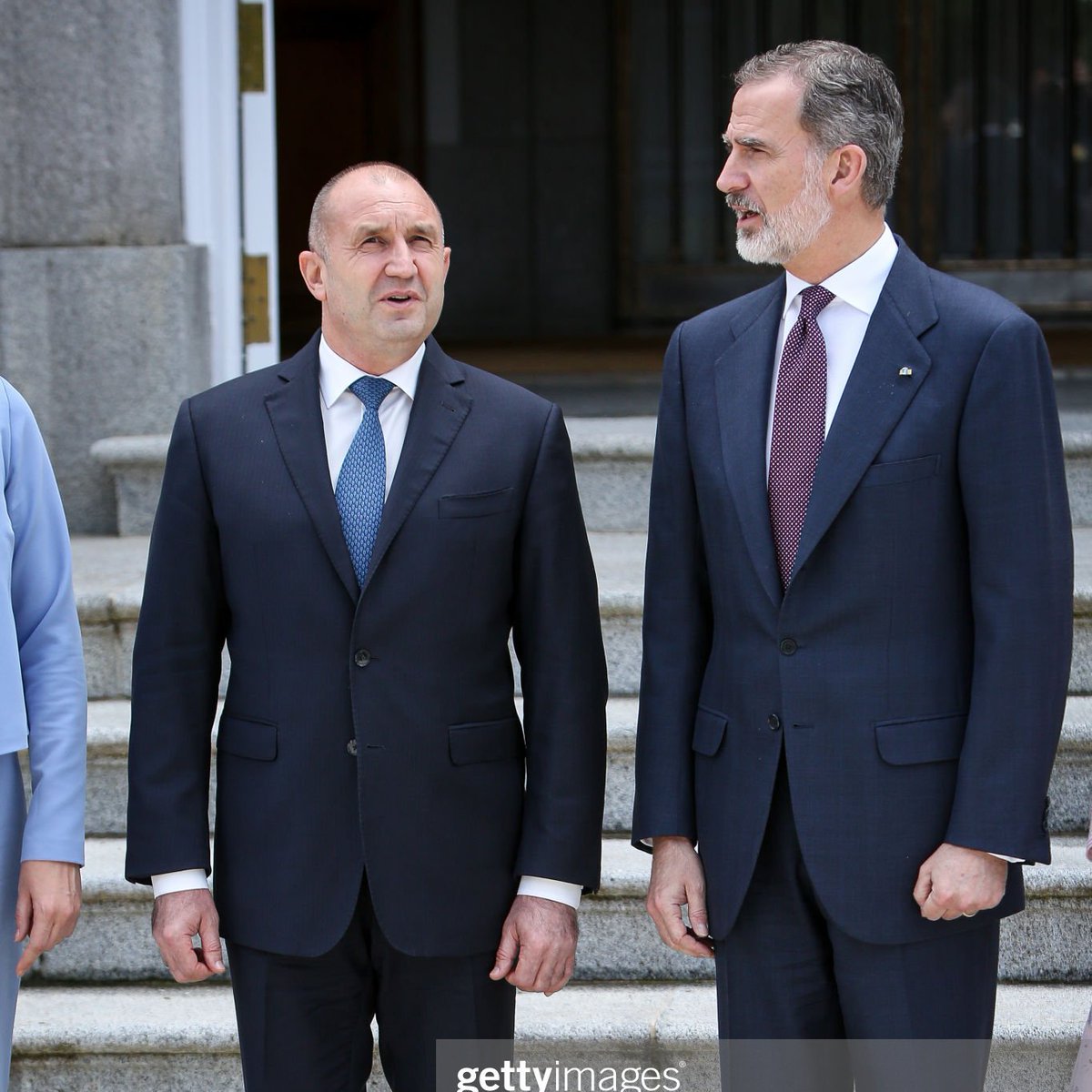
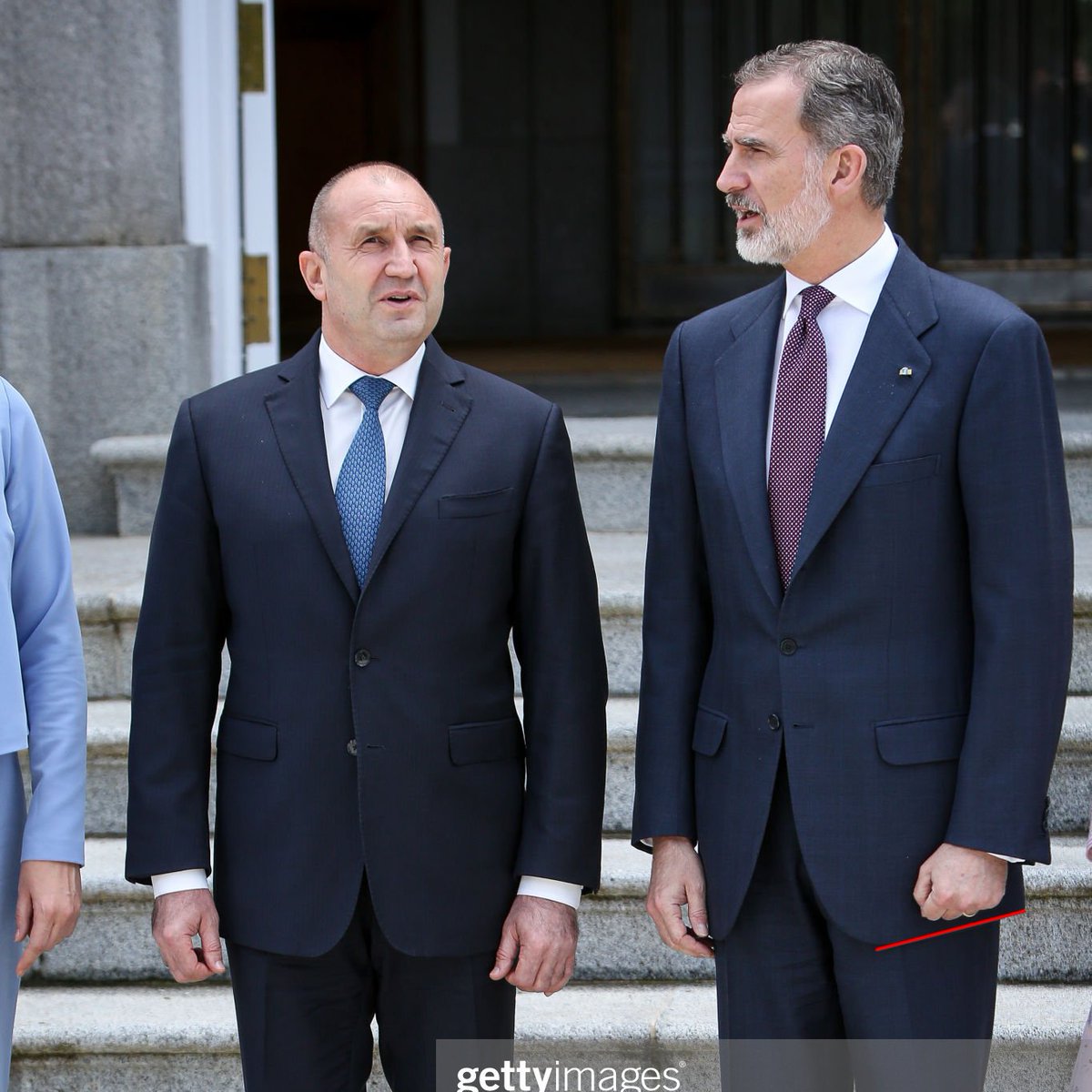
A lot of guys will naturally point out that Tristan has a very muscular build. And when you have that sort of build, you want to show it off. But there are other ways to create that flattering V-shaped figure and keep clean lines. Suit should not be pulling and wrinkling all over


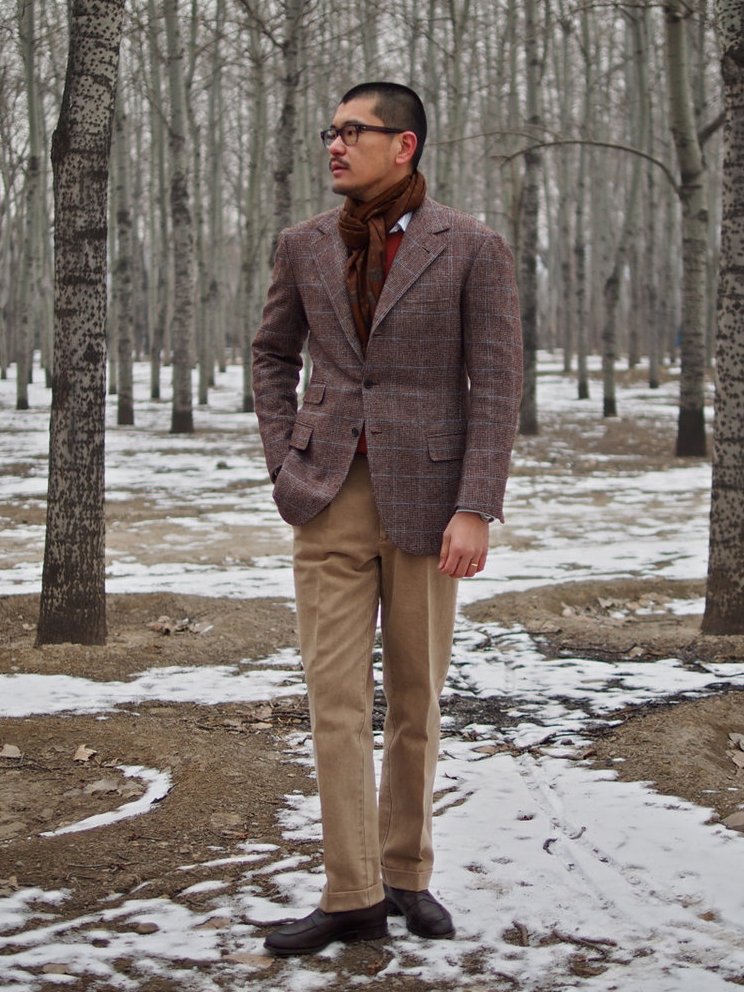
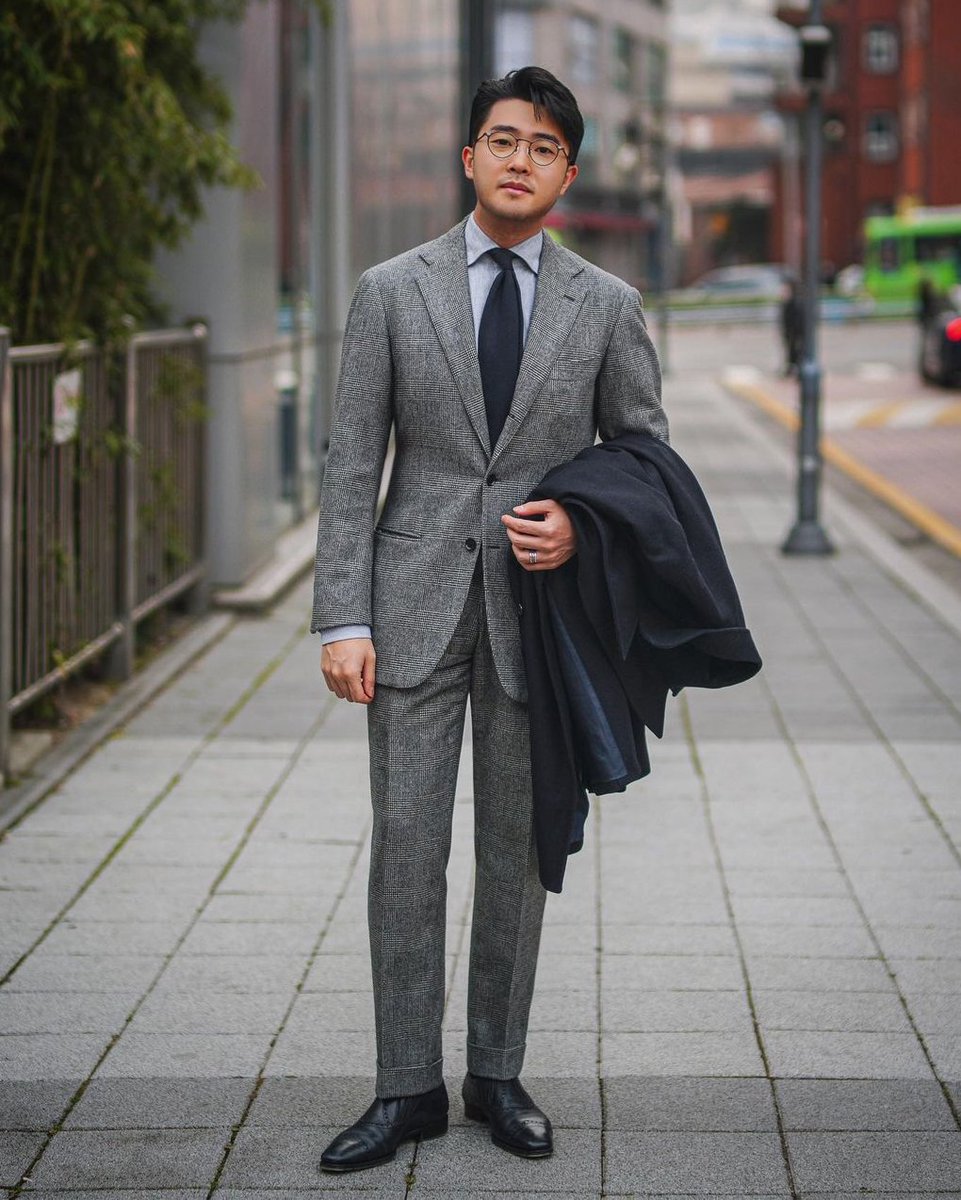
A couple of weeks ago, two followers shared with me photos of themselves in their summer suits. The first person here is @MrSamWilkin; second person is @andrewdefrank


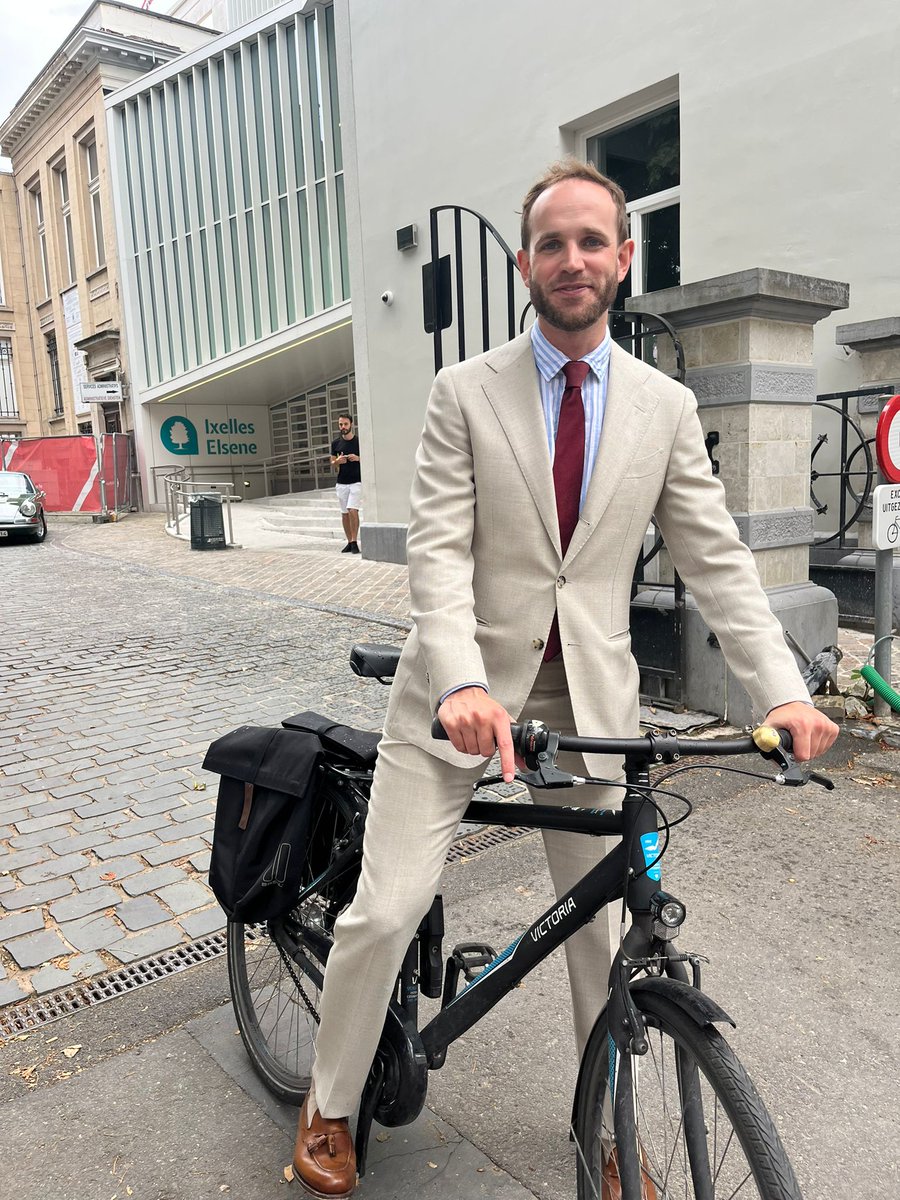
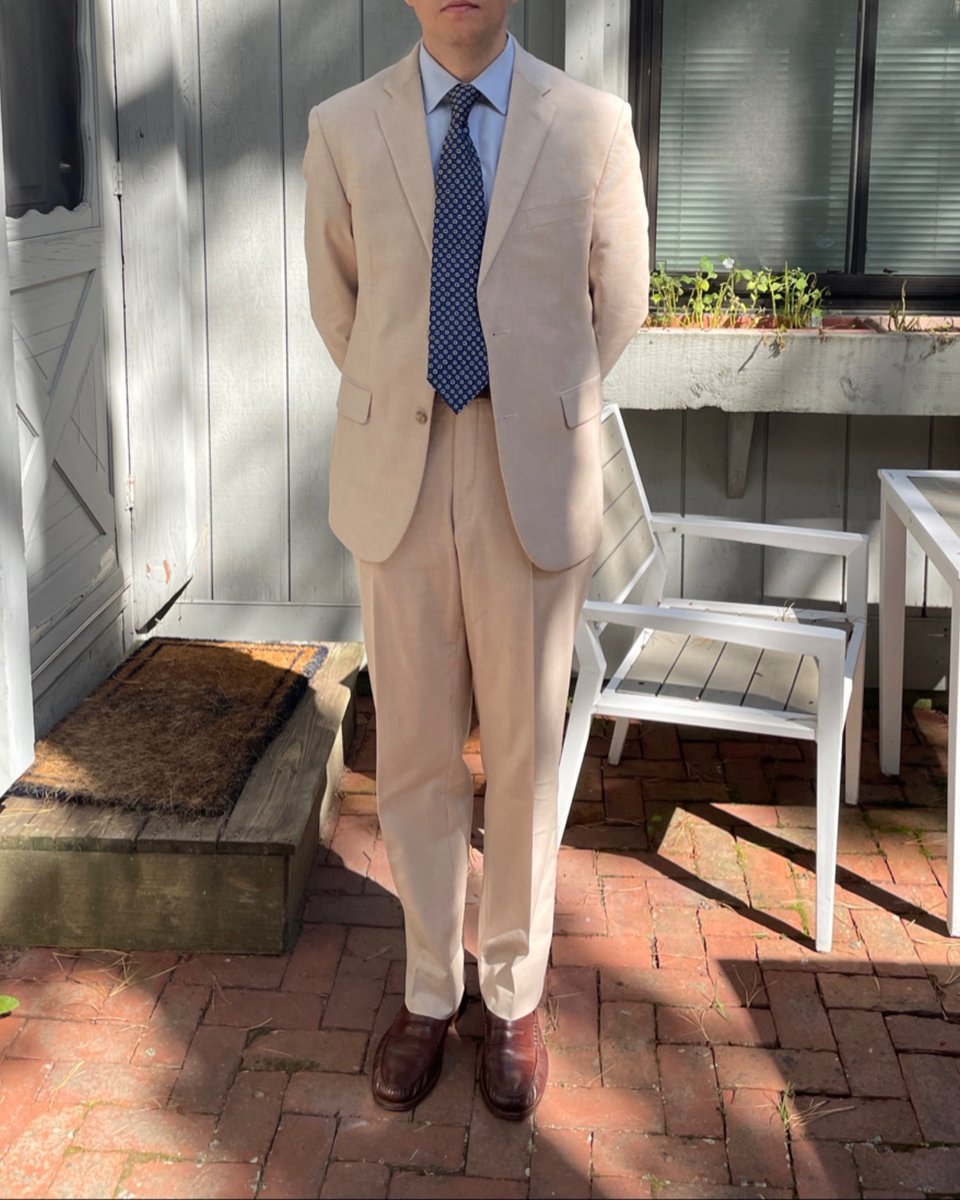
In this photo of @MrSamWilkin, he's standing on a bike, which makes it hard to assess the fit. But see: no shouler divot, lapels lay flat, not much pulling across waist (little here is caused by his pose), and trousers hang reasonably straight on his left leg (other is bent) 

Same with this photo of @andrewdefrank. The coat isn't buttoned, so we can't see how the lapels and buttoning point look when the coat is fastened. But the sleeveehead and trousers are reasonably clean for what looks to be a linen suit. 
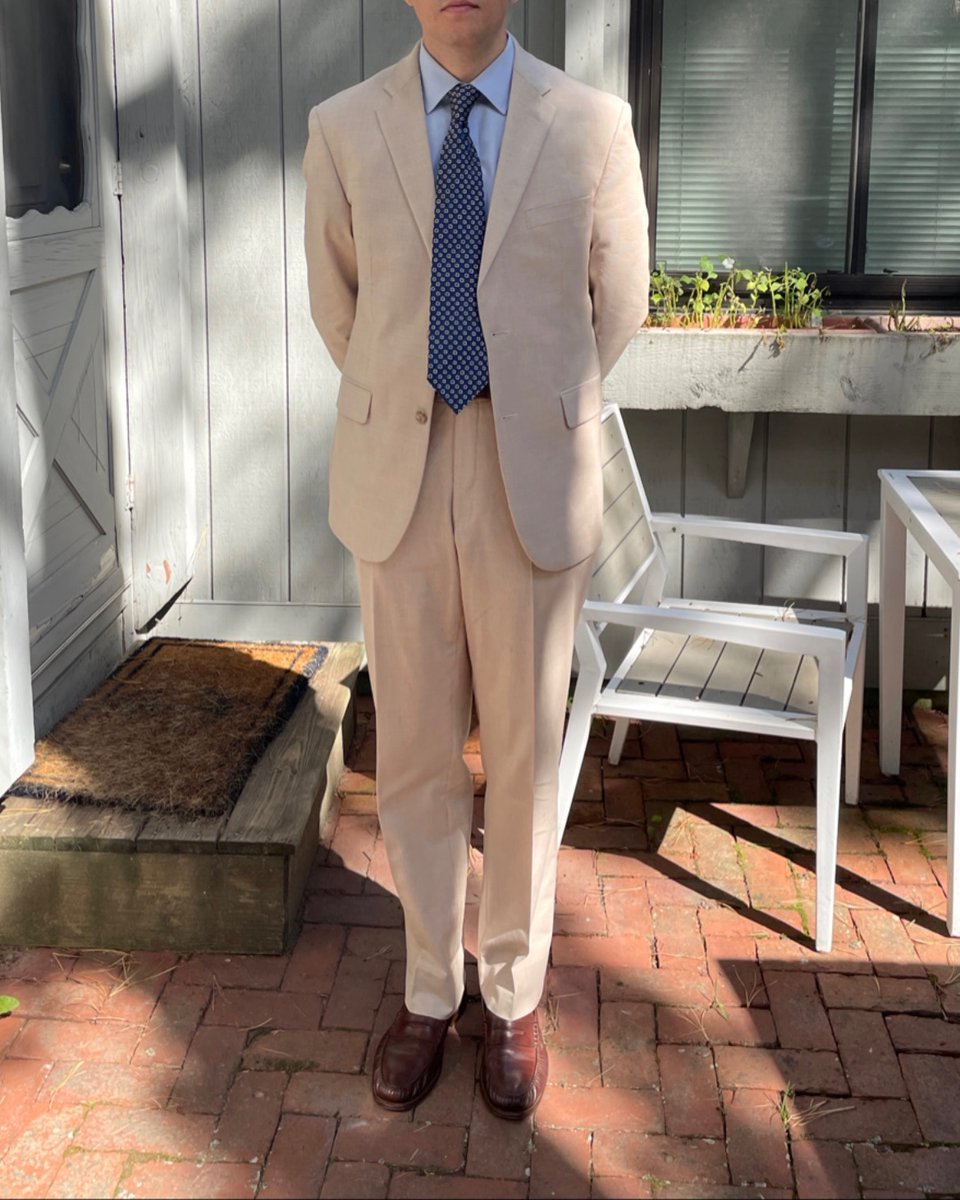
What do you think were the cost of these garments? Certainly not $20k. But take a guess before going to the next tweet.
The first suit (@MrSamWilkin on a bike) is from Suitsupply. He paid 500 euros (~$550 given the current exchange rate). @andrewdefrank tells me that he doesn't remember what he paid, but it's from the esteemed tailoring house Jos A Bank (he bought it in 2018 as part of a sale)
Does this mean that you should rush to Suitsupply and Jos A Bank to buy these specific suits? No, as the cut may not work for you. Each person has their own uniquet set of fit challenges, which they have to identify and find solutions for. 
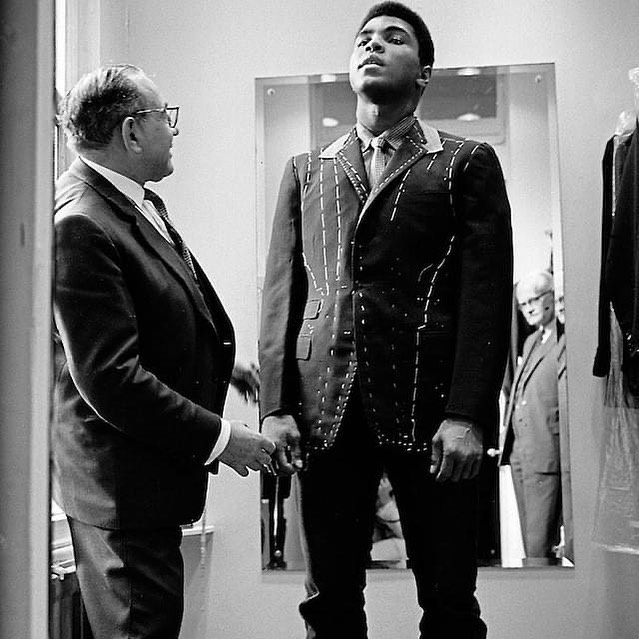
But certainly, price is not nearly as important of a factor as many assume. A $500 suit can be better than a $20k suit. Goal should be to develop your eye, understand some basic tailoring principles, and find trustworthy tailors and clothiers who can help you get what you need.


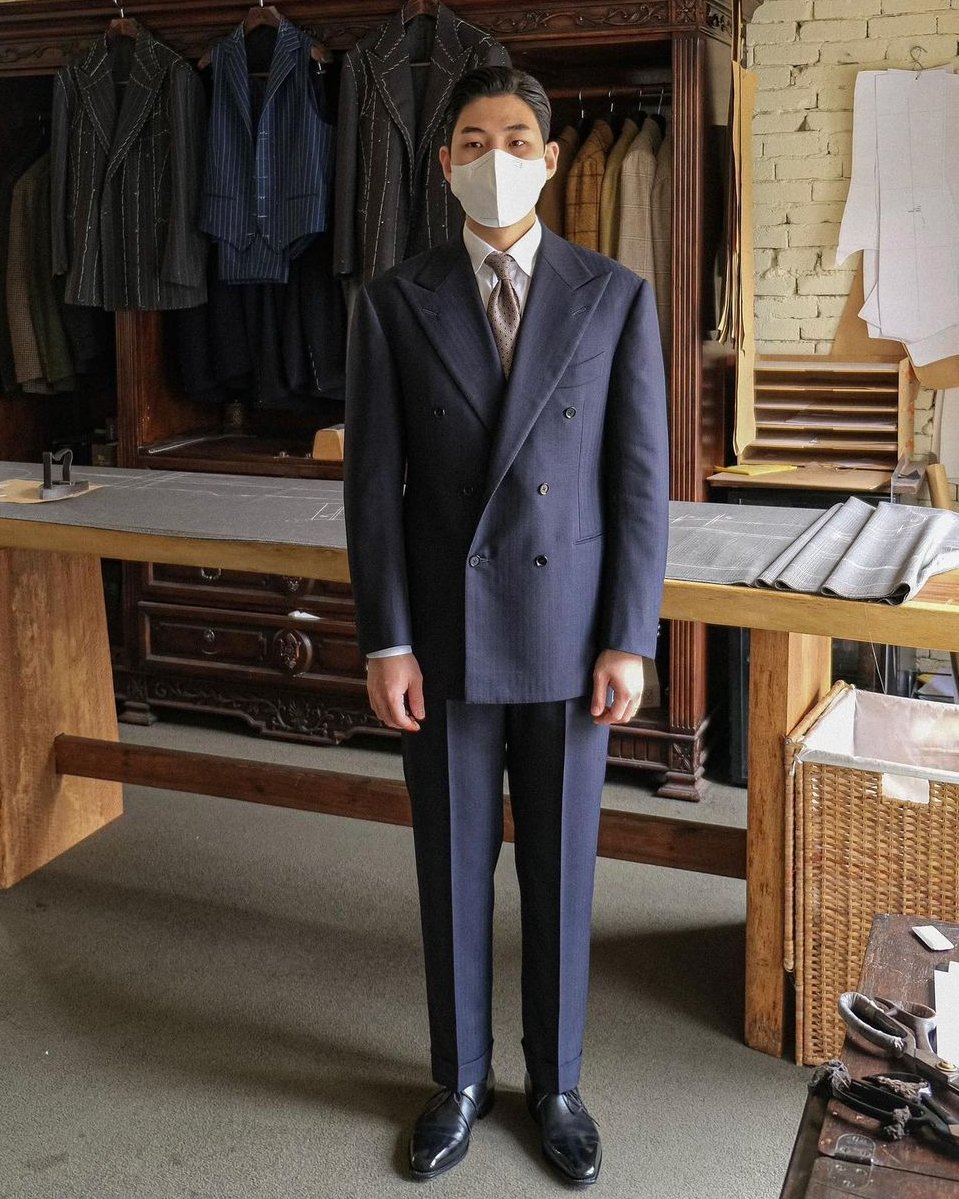
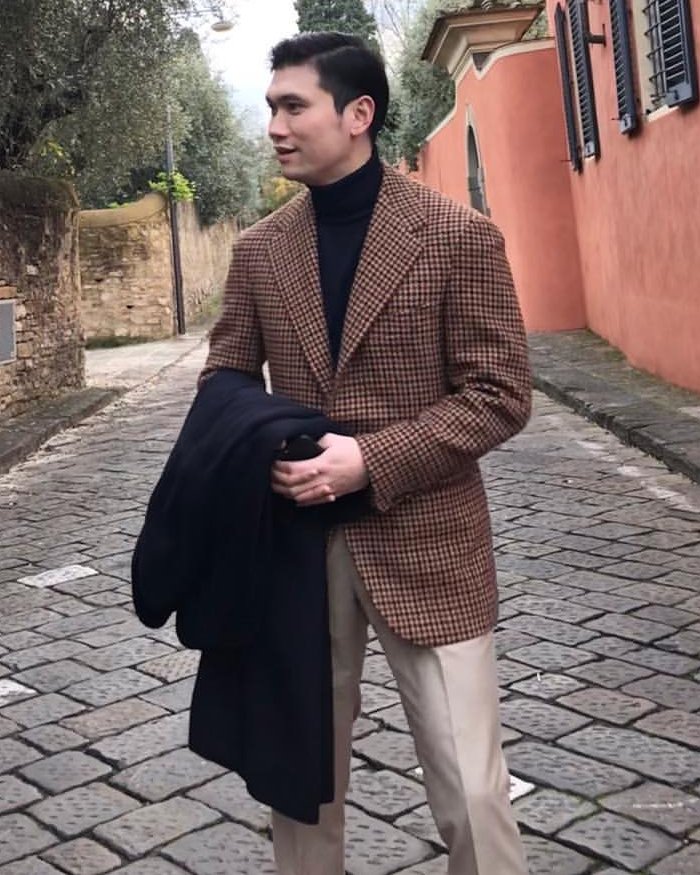
Will leave you with this quote from First Lady Elanor Roosevelt, who summed up this sentiment neatly in her book It’s Up to the Women, published during the depths of the Great Depression: 
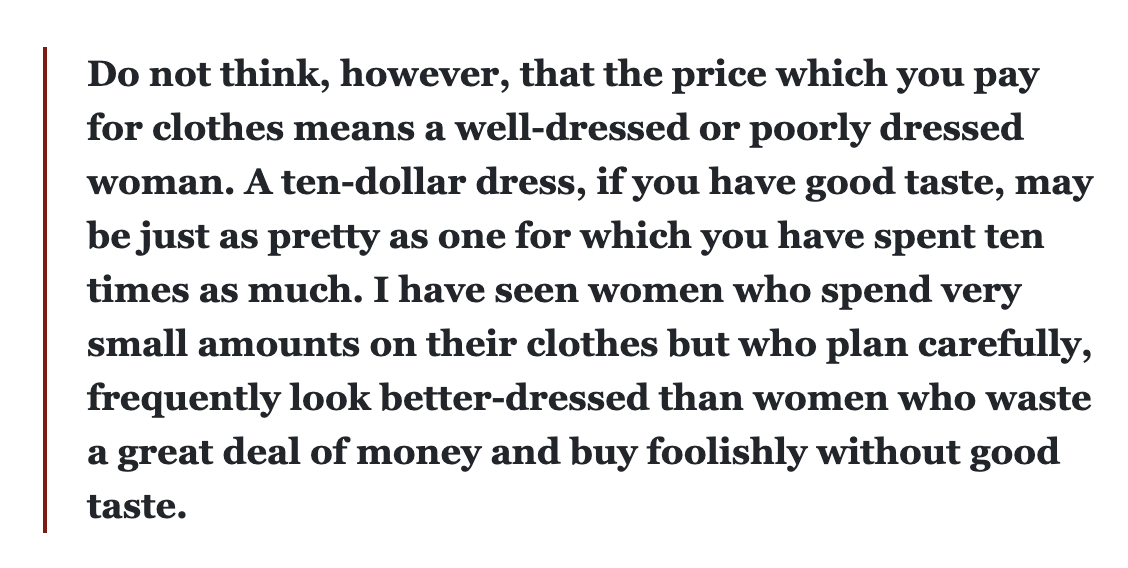
• • •
Missing some Tweet in this thread? You can try to
force a refresh

 Read on Twitter
Read on Twitter

































